Web Page Scraper: Is It Legal To Scrape Websites?
WebscrapingAPI on Nov 15 2022
There is a lot of talk these days about web scraping and the legality of it. People want to know if they can scrape websites legally and if there are any repercussions for doing so.
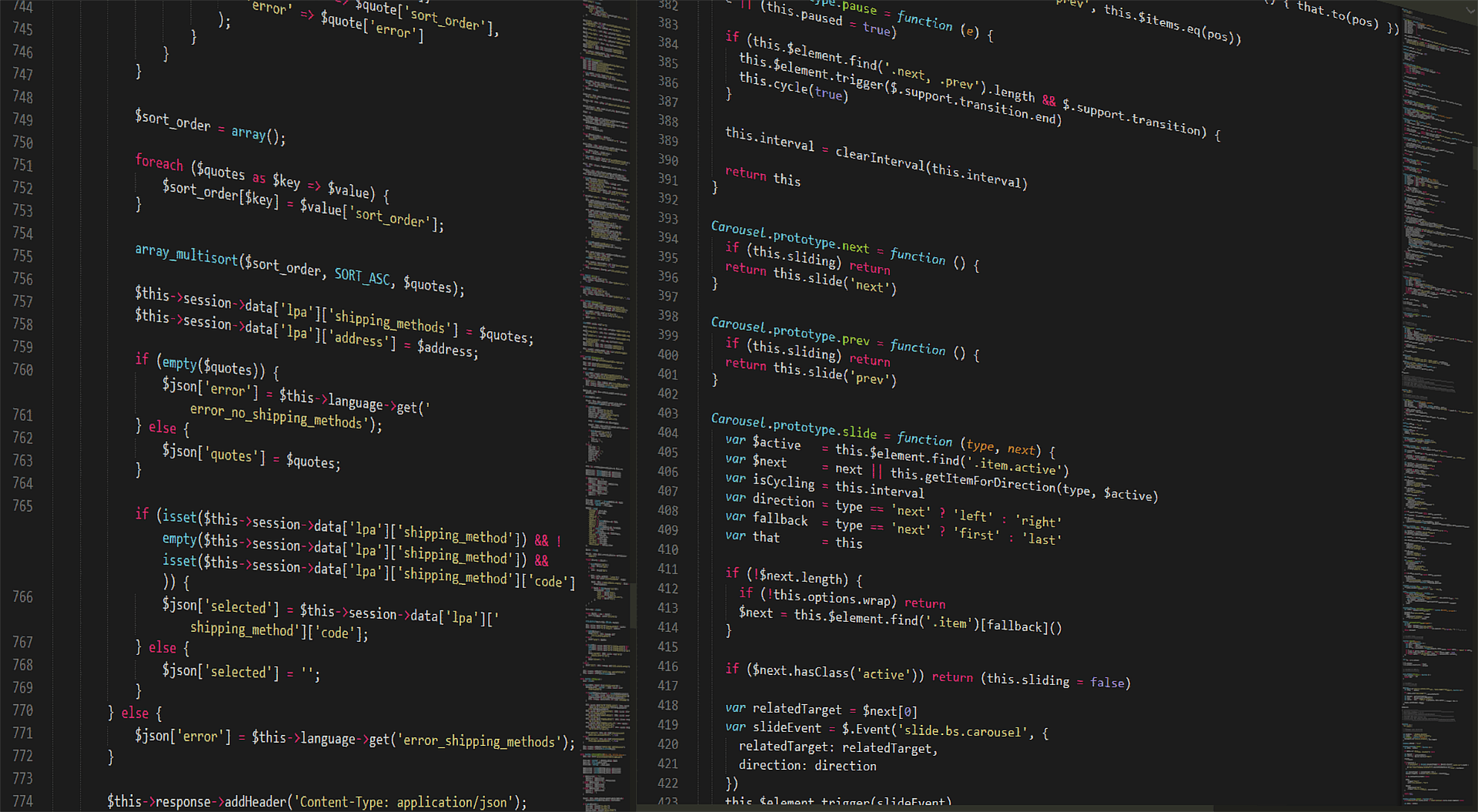
There are several reasons why businesses might want to use a web page scraper. Maybe you want to collect data for a research project, or maybe you're looking to compile a list of contact information for a marketing campaign.
Whatever the reason, it's important to understand whether web scraping is legal or not.
In this blog post, we'll tend to all of these questions and more. We'll start by discussing what web scraping is and why people do it.
Then we'll move on to the legality of web scraping and finally show you how to choose automated tools for your data extraction needs!
Web Scraping: An Overview
Web scraping is a process of harvesting data from web pages to collect information without the need for manual input. It involves using a computer program, typically called a web scraper or web crawler, to extract data from websites.

The web scraper can be used to collect both structured and unstructured data. Structured data is often found in tables or forms on web pages and can easily be harvested with a web page scraper. Unstructured data is more difficult to acquire but still possible with the right tools.
A lot of people are turning to Google Sheets as an easy-to-use alternative for building their own scrapers. With Google Sheets, you can create custom formulas that will scrape web pages according to your specific requirements.
Suppose you are a researcher who needs to collect data from multiple websites for a project. A web scraper would be the perfect tool to quickly and easily extract what you need.
On the other hand, many businesses use web scraping to collect customer data for marketing campaigns. They might be looking to get contact information, such as email addresses or phone numbers, from various websites.
At its core, web scraping is a process that can be used for several different purposes, including research, marketing, and more.
What Are The Commercial Advantages of Web Scraping?
There are several commercial advantages to web scraping. One of the most apparent benefits is the ability to quickly and easily gather large amounts of data from multiple sources with just a few clicks.
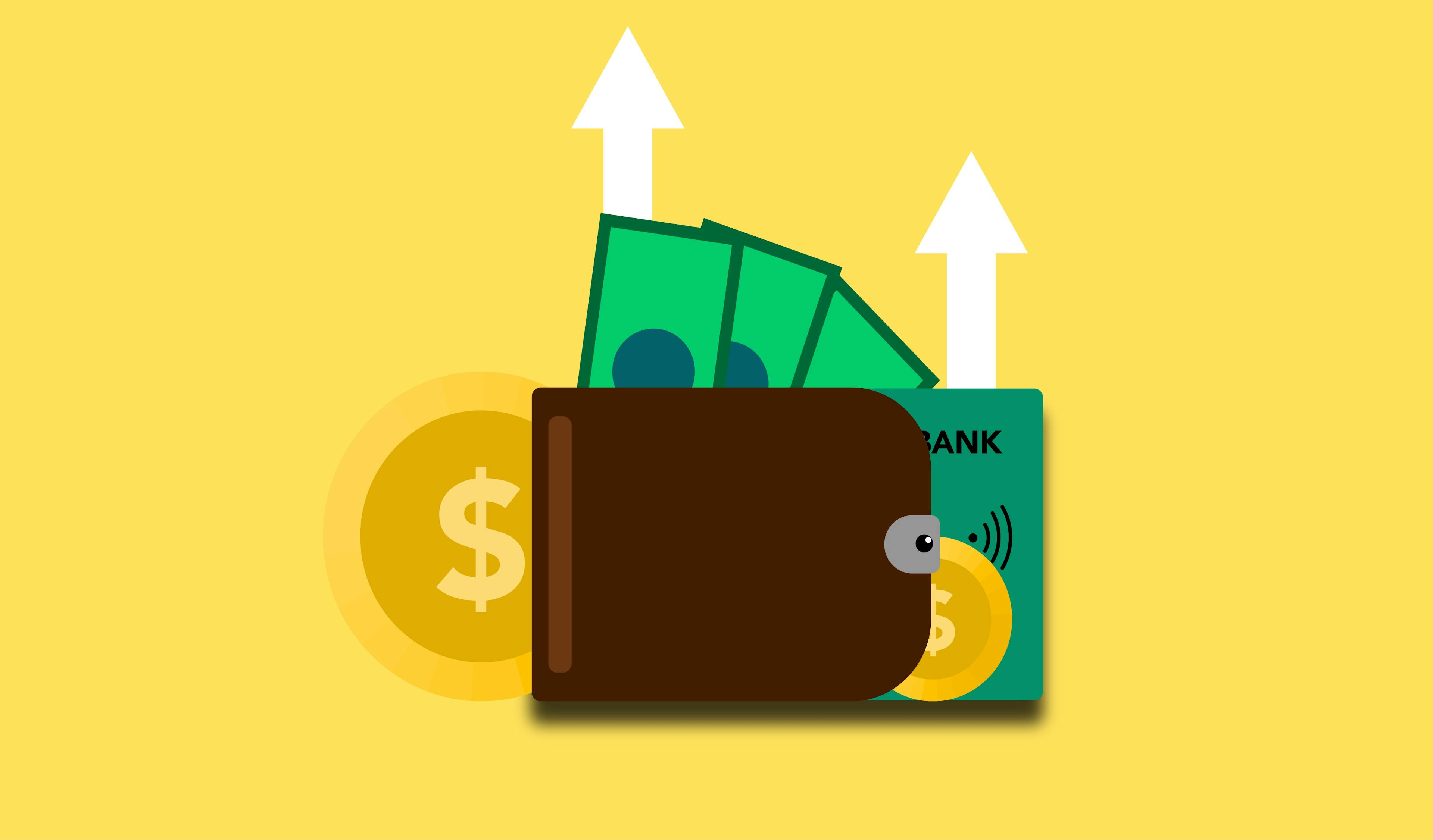
It has become a convenient option for businesses to monitor the broader market, optimize prices, and generate new leads.
The following are some prominent reasons why businesses use web scraping:
Optimizing Value Proposition:
Value proposition is a term that refers to the offer made by a company to its customers. Web scraping can be used to monitor competitors in order to understand what they are offering and optimize the value proposition accordingly.
Pricing can be tricky. You need to find the sweet spot that balances and positions your brand optimally, demonstrating value without undercutting your margins and boosting profits without deterring customers. It's all about finding the right perceived value for your products or services.
That's where web scraping can help. It can provide valuable insights into the competition, allowing you to make well-informed decisions about pricing and value proposition.
Competitor Intelligence:
Keeping pace with the competition is essential for any business, especially in a digital age. Web scraping can be used to monitor competitors' pricing strategies and product offerings, allowing businesses to make informed decisions about their own strategies.
For example, if you know that a competitor is offering discounts and promotions, you can use this knowledge to position your own offerings more competitively.
On the other hand, if a competitor is introducing a new product into the market, you can use web scraping to better understand the market and decide how to respond.
Generating Quality Leads:
How often do you waste time manually searching for quality leads? Web scraping can provide a much more efficient way of finding good leads.
Suppose you are looking for corporate customers in a particular industry. With web scraping, you can quickly gather data on potential leads and save time doing manual searches.
It works by automatically gathering data from various sources and compiling it into a single list, making the process much simpler. That is;
- Researching relevant websites according to your niche
- Defining a target audience with as much detail as possible
- Building a database filtered by the appropriate parameters
Vetting Potential Collaborators or Suppliers:
Given the sheer number of potential suppliers and collaborators in any given industry, it's difficult to know who to trust. This is where web scraping can help.
You want to be confident that the company you're aligning your business with - whether as a vendor, stockist, partner organization, or service provider - has commendable values and brand reputation.
It has happened many times that companies have ended up in legal entanglements as a result of working with an unethical partner. Background checks and trade references can give you some idea about a person or company, but they are not comprehensive and may not include essential information.
Data scraping can quickly and easily retrieve large amounts of data about almost any variable, making it an essential tool for businesses and individuals alike.
Refining Product Development:
In the day and age where multiple businesses are selling the same product, it is essential to stay updated with customer preferences and industry trends.
In today's digital world, it is very uncommon for customers to buy something without reading reviews or looking at ratings first. Consequently, a high score can make a big difference. So, how do you make your product unique and more attractive?
Without doing your research, creating products is like shooting in the dark. However, through web scraping, you can obtain useful feedback to better understand what customers want.
Today, businesses are using data scraping to collate a range of metrics, including:
- Comparable reviews on different products with varying features
- Feedback on previous launches or product versions
- Customer responses to competing or similar products
Is Web Scraping Legal?
In short, Yes! Web scraping is legal. As long as the data you're scraping can be accessed publicly, it is generally legal to scrape websites, provided your methods do not violate any terms of service or other contractual limitations.
However, there are certain important considerations to keep in mind:
- Obey robots.txt directives. Most websites have a robots.txt file that outlines which areas should not be crawled and scraped for data extraction purposes.
- Do not scrape copyrighted content without permission from the copyright holder. Doing so can result in serious legal repercussions.
- Respect rate limits and prevent overloading web servers with requests. This may include using Google Sheets or similar services to spread out requests over time or prevent duplicate requests from being sent.
How to Make Ethical Scrapers?
When you are running a company, you should be careful when web scraping because your competitors can use it against you. To protect yourself and to be a good, law-abiding digital citizen, there are several steps you can take when creating and running your web scrapers.
Think twice before scraping personal data
If the data collected can be used to identify a person, make sure you obtain their consent before scraping it.
This data can be anything from official information about a person, contact details, behavioral data, shopping preferences, location either by address or GPS, Video + audio recordings of people and biometric data, sex, gender, sexual orientation, and medical records, among other information.
Publicly available personal data
When it comes to web scraping, many people mistakenly believe that only private personal data is protected. But what does that even mean? And is it really okay to scrape personal data from public sources like websites? It all depends.
A company in the EU was fined a hefty amount for scraping public data from the Polish business register. Although the court later overturned the fine, it did uphold the ban on scraping publicly accessible data.
According to the CCPA, government-released information like business register data is "publicly available" and not classified as protected.
The most recent decision concerning scraping publicly accessible data from social media networks in the US has stirred up a lot of controversies. The case, HiQ vs. LinkedIn, deals with whether or not it is legal to scrape personal information that was made public by the person.
Common Myths About Web Scraping
While web scraping is a legal practice, there are several misconceptions about it. Here are some of them:
Myth 1: Web scrapers operate in a gray area of law
Absolutely not! Legitimate web scraping companies, like WebScrapingAPI, are regular businesses that follow the same set of rules, criteria, and regulations that other legal businesses do.
Myth 2: Web scrapers are stealing data
Public data cannot be stolen. It is made public for a reason, and web scrapers are simply collecting it to use it for their own purposes. It is like clicking pictures at Disney Land and sharing them on social media. No, Disney is not going to sue you for clicking their pictures and using them for your own benefit.
Myth 3: Web scraping is hacking
No, it is not. Hacking implies breaking into a system with malicious intent and gaining access to confidential information. On the other hand, web scraping is merely extracting publicly available data off web pages that can be seen by anyone who visits them. It isn't accessing any restricted or private data without permission.
Think of web page scrapers as humans. They work exactly the same as a legitimate human who browses the internet to retrieve information and perform research.
How to Choose the Right Web Scraping Tool for Data Extraction?
When it comes to scraping web data, there are plenty of tools available. It's important to choose the right web scraping bot for your specific needs and goals. Different web scraper tools will have different strengths and capabilities when it comes to data extraction.
Here are some pointers on how to choose the right web scraper tool:
Understand Your Data Extraction Needs:
Make sure you understand what kind of data you need to extract from websites. This includes how large or small the sites you want to scrape are, as well as what format your results should be in (such as HTML or XML). Knowing this beforehand will help you narrow down your options quickly.
Consider Your Budget:
Web scraper tools can be expensive, so it's vital to find a parse data tool that fits within your budget. There are free and open-source web scraper tools available, but their capabilities may not be as robust compared to paid options.
Consider the Navigational Factors:
Look for a data mining tool that is easy to use with the minimal technical knowledge required. For example, WebScrapingAPI has an intuitive user interface that enables users to quickly and easily extract data from websites without needing to write complex code or download any software.
Check Out Reviews:
Read reviews from users who have tried out different web scraper tools. This will give you a sense of how reliable each one is and if there are any issues with them.
Try It Out:
Once you think you've found the right web scraping tool for your needs, try it out to make sure it meets all of your requirements. This will help ensure that you don't waste time and money on a product that doesn't meet your expectations.
WebScrapingAPI: Ready-to-Use Web Scraping APIs
WebScrapingAPI is one of the most reliable and easy-to-use web scraping solutions out there. With its APIs, you can quickly and effortlessly get data from any website without requiring to write a single line of code.
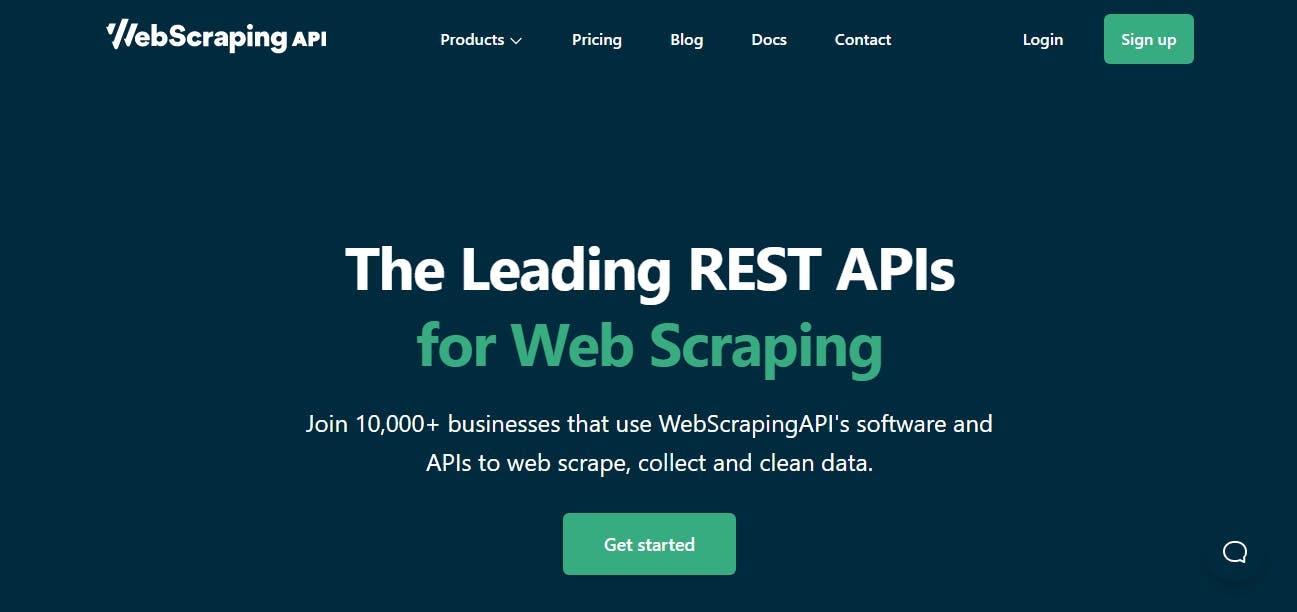
They offer ready-to-use APIs that are perfect for businesses that don't want to waste time on coding or downloading software.
With just a few clicks, you can turn any web page into raw HTML and make the data processing process easier for everyone in your company. They automatically account for proxies, JavaScript rendering with real browsers, and CAPTCHAs.
Google Search Engine Results Pages (SERP) are a goldmine of data, and with WebScrapingAPI, you can extract organic results, ads, images, maps, shopping data, knowledge graph information, reviews, and much more.
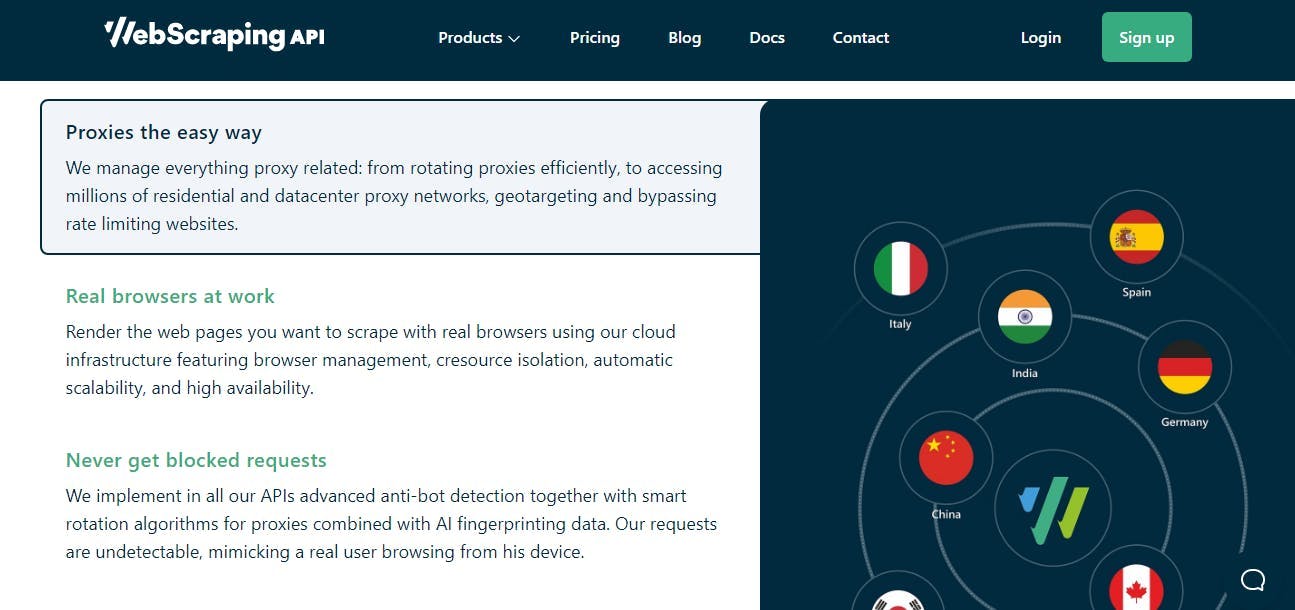
Most importantly, you can turn your search queries into structured HTML, JSON, or CSV data. This allows for more efficient data processing and analysis.
Above all, the platform is 100% legitimate, and thousands of businesses rely on it for their data extraction needs. It also offers flexible pricing plans for different types of businesses, so you can find one that fits your budget.
News and updates
Stay up-to-date with the latest web scraping guides and news by subscribing to our newsletter.
We care about the protection of your data. Read our Privacy Policy.

Related articles
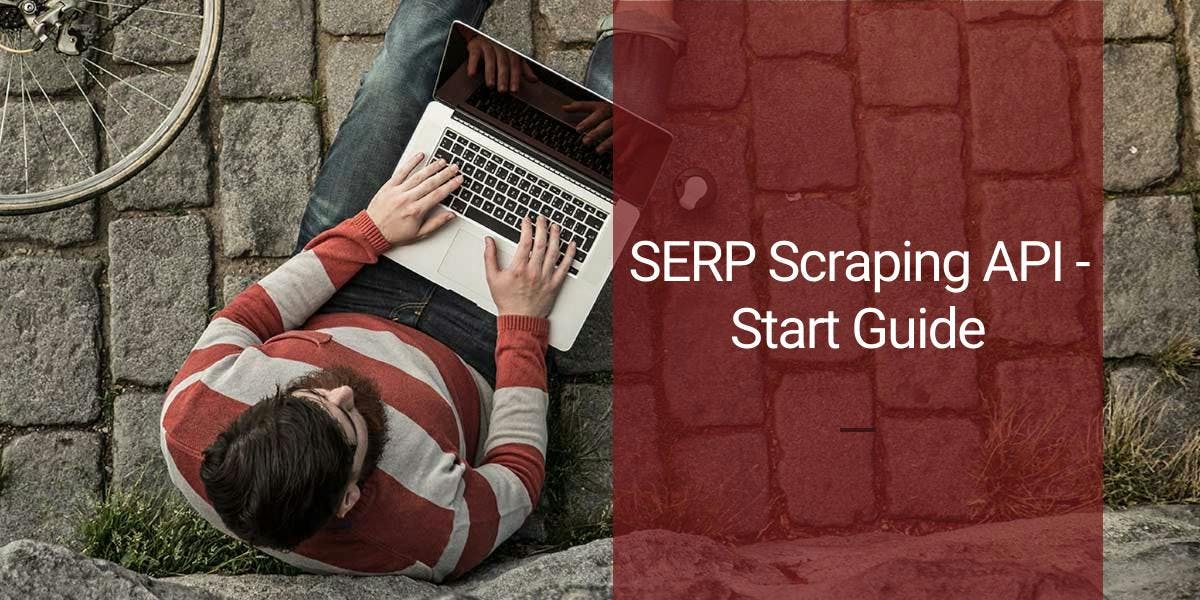
Effortlessly gather real-time data from search engines using the SERP Scraping API. Enhance market analysis, SEO, and topic research with ease. Get started today!
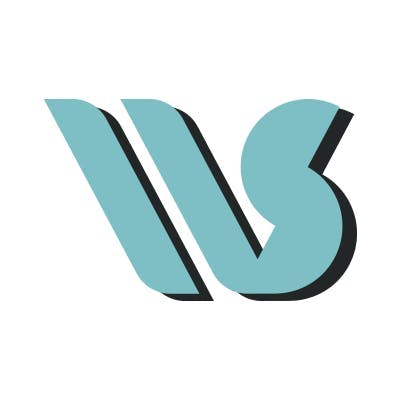
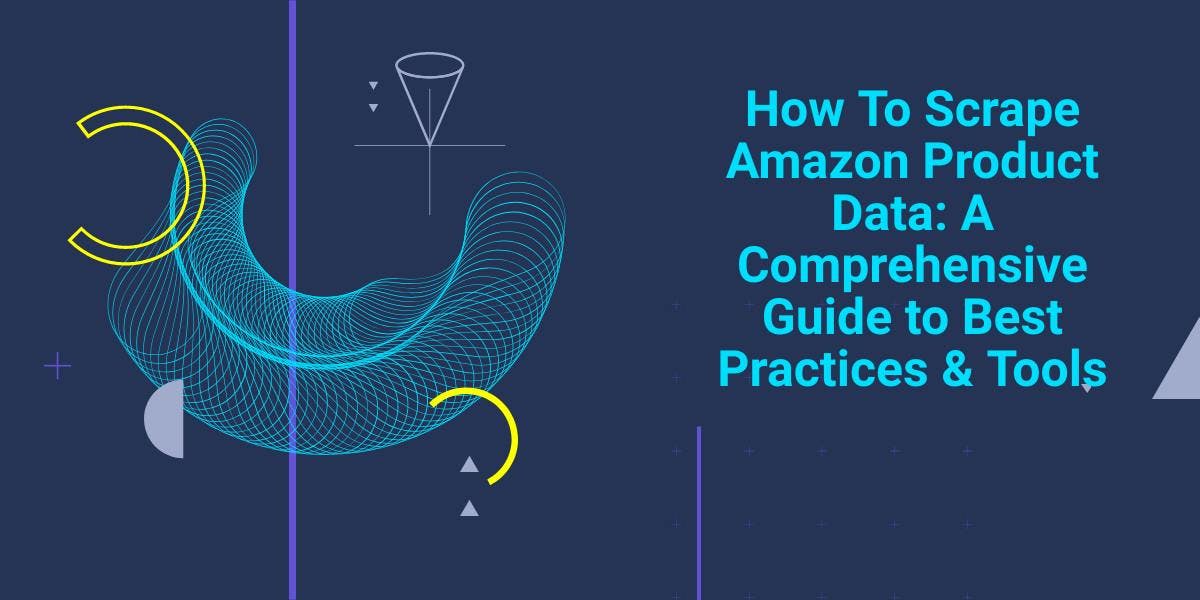
Explore the complexities of scraping Amazon product data with our in-depth guide. From best practices and tools like Amazon Scraper API to legal considerations, learn how to navigate challenges, bypass CAPTCHAs, and efficiently extract valuable insights.

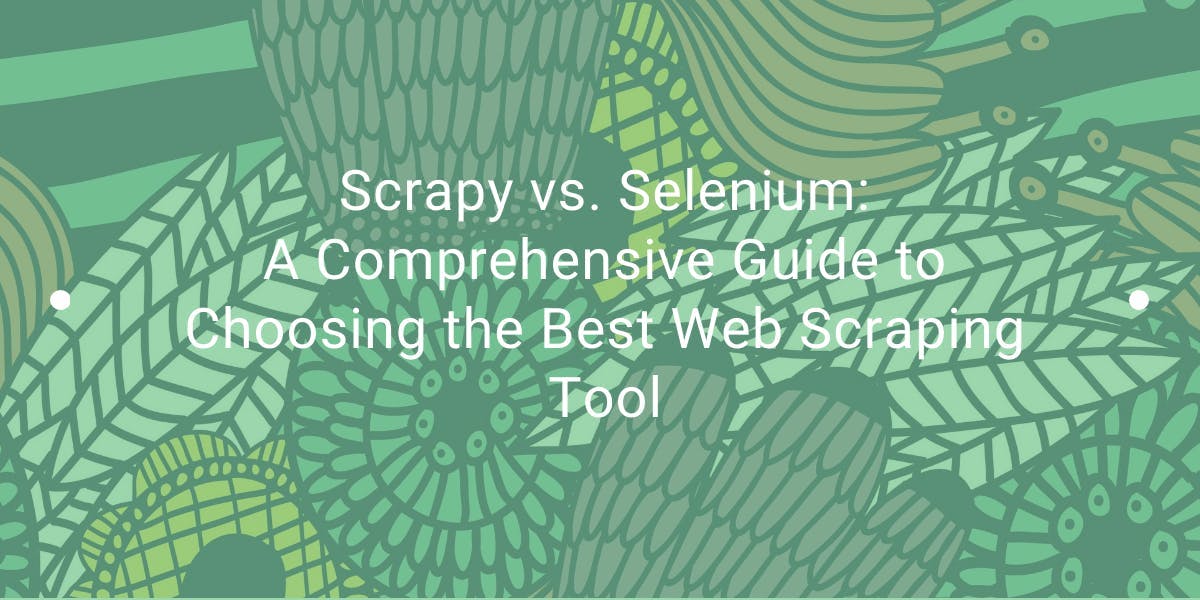
Explore the in-depth comparison between Scrapy and Selenium for web scraping. From large-scale data acquisition to handling dynamic content, discover the pros, cons, and unique features of each. Learn how to choose the best framework based on your project's needs and scale.
